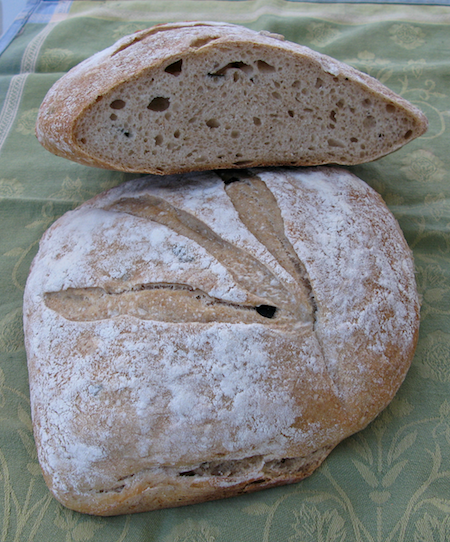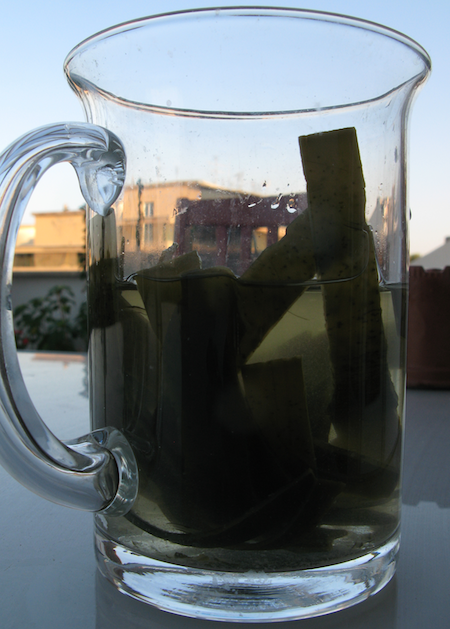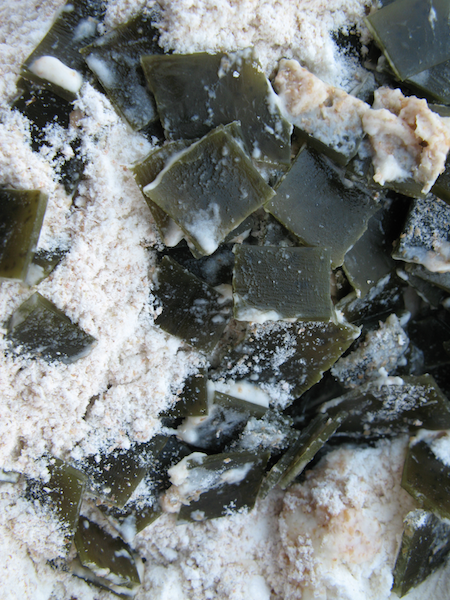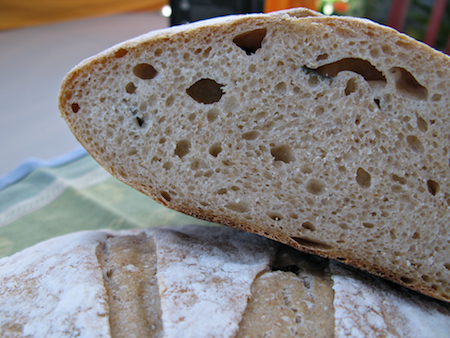
Catching up with podcasts, there was an intriguing bit in The Food Programme episode Seaweed, a forgotten food?. A baker 1 said she regularly put seaweed in her breads, and that it added a good meaty note of umami. I remembered an old packet of dried kombu sitting in a drawer. Bingo.
Rather than simmer the kombu, I cut a sheet into strips and put them in a Thermos with 250 ml of boiling water, leaving that to steep overnight. Next morning, the biggest surprise was the elongation of the strips. It's a wonder kombu -- unlike some other "sea vegetables", a ghastly phrase -- doesn't have a reputation as an aphrodisiac. A negligible sheet of crinkly paper-like kombu had turned into 40 gm of long slithery strips of lovely greenish seaweed.

Kombu the morning after a tepid soaking. Look how long it is!

Bits of soaked kombu chopped into the dough.
I cut those into smaller pieces, tipped them and the 210 gm of seaweed liquor into my usual mix (20% wholewheat, 65% hydration, 28% starter) and gave it a perfunctory stretch and fold. The only change to the recipe was to reduce the salt from 15 gm to about 8 gm. One hour bulk fermentation at room temperature, then into the fridge for 12 hours. Shaped, proved for 90 minutes, then into a 430°F oven with steam for 22 minutes. Another 22 minutes at about 410°F without steam, and then cooled on a rack.
The crumb and crust were as expected, the taste subtly different, at least to me. It did seem to have a bit more heft or body. Or maybe that's just because I was anticipating something different.

Kombu bread; the obligatory crumb shot.
Will I do it again? Yes, I think so. Later that day, with some fresh tomatoes, I definitely felt that there was more flavour to the bread.
Uncharacteristically, I did not research this idea to death before plunging in. And I'm glad I didn't. Over at The Fresh Loaf are all sorts of recipes that involve seaweed, but none for kombu or kelp specifically. And there are other recipes elsewhere. All I can say is, mine worked, with thanks to The Food Programme for the inspiration, and my dusty store drawer for the wherewithal.
I'm sending this to YeastSpotting too.
-
I wasn't listening hard enough, didn't make a note, and am currently too pressed for time to listen again. ↩
Webmentions
Webmentions
Webmentions allow conversations across the web, based on a web standard. They are a powerful building block for the decentralized social web.
If you write something on your own site that links to this post, you can send me a Webmention by putting your post's URL in here:
Comments